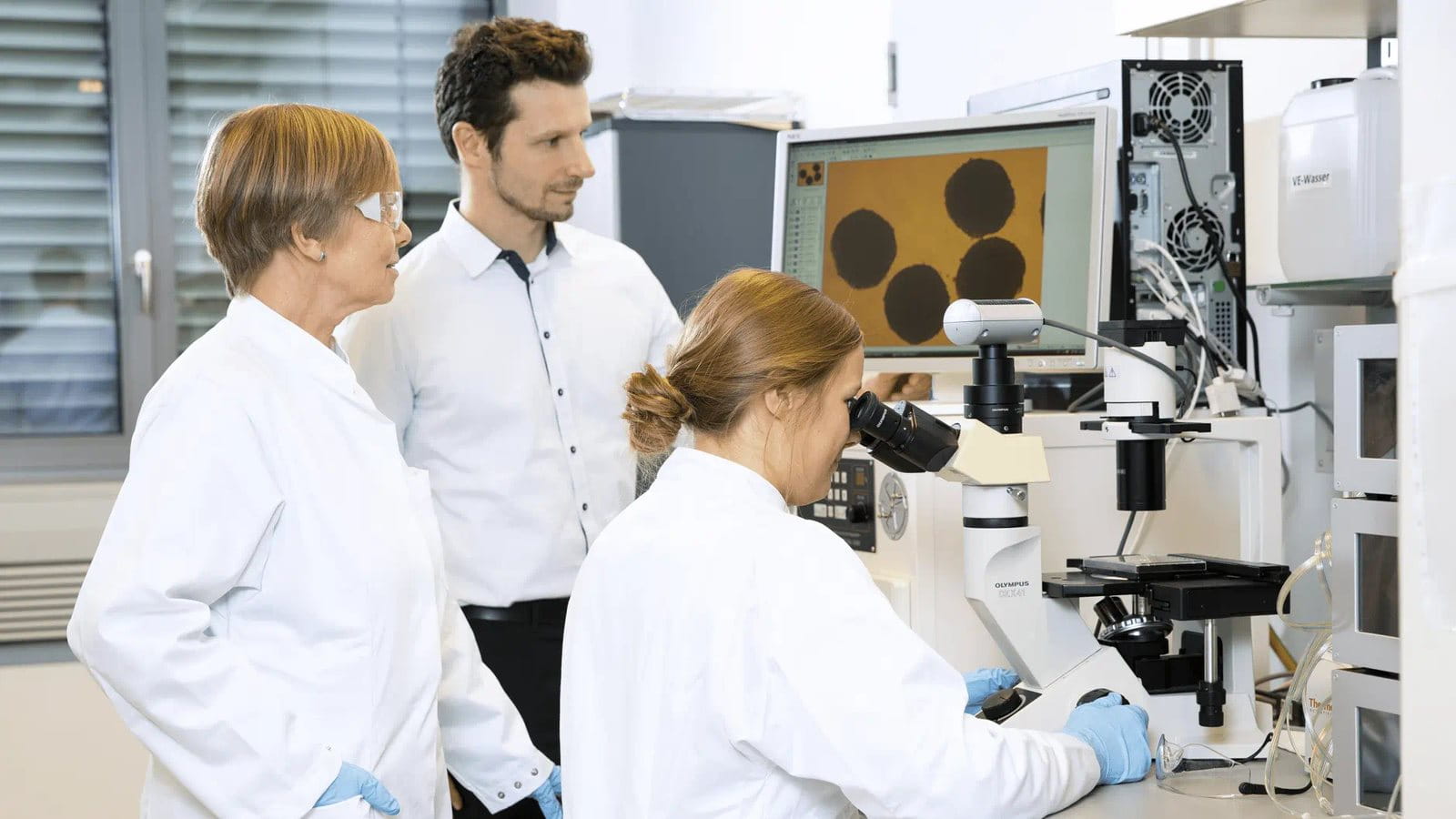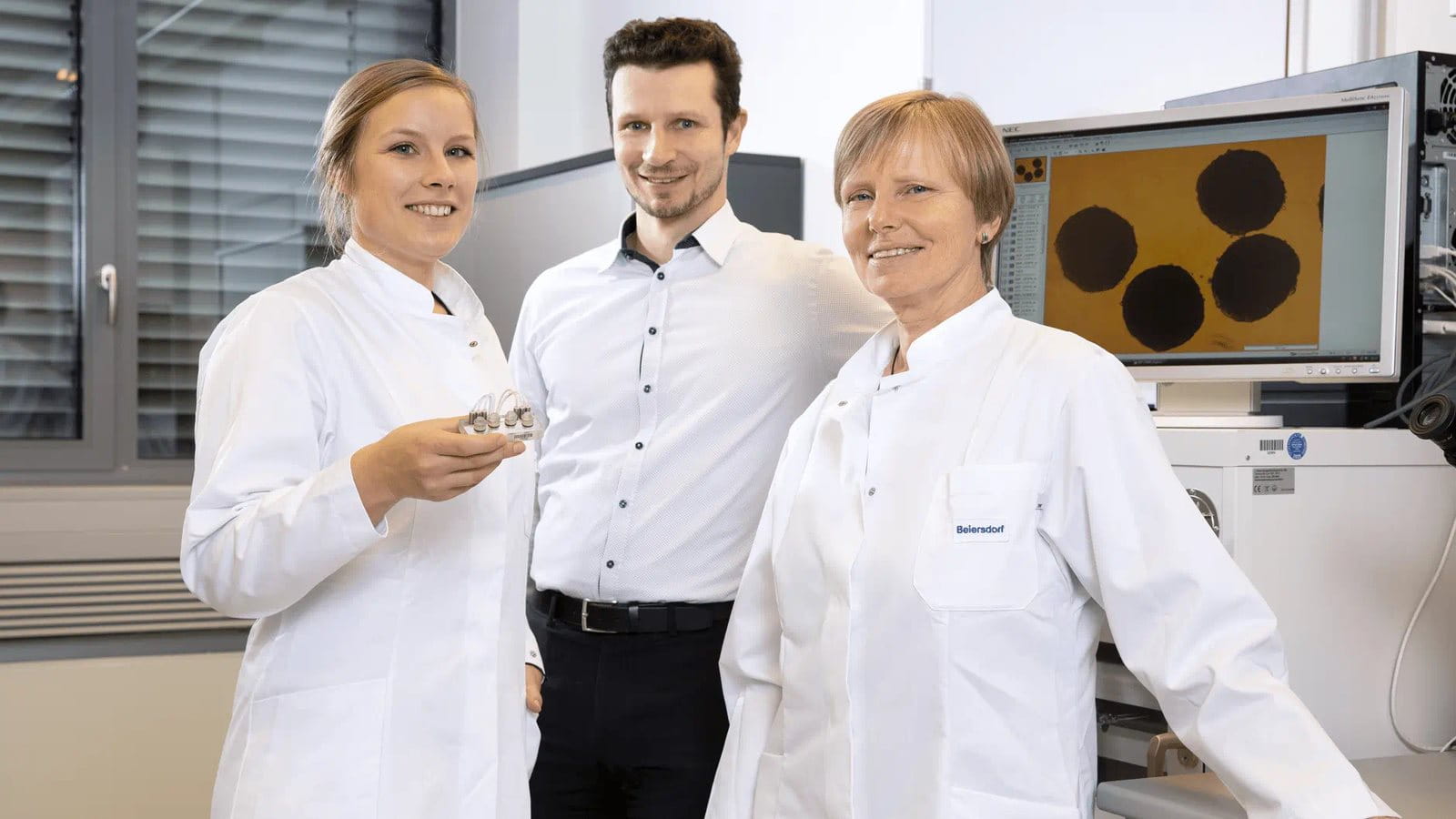They are a great opportunity for the development of alternative test methods and the validation of the safety of cosmetic products and ingredients – multi-organ chips. Already since 2014, a Beiersdorf research team has been cooperating with the Berlin-based start-up company TissUse, working on the simulation of physiological processes and the interaction between skin and liver.

Breaking new grounds with multi-organ chips

100,000 times smaller than the original
On a biotechnological platform that is hardly bigger than a credit card, the Beiersdorf scientists grow tiny three-dimensional tissue models of skin and liver. These so-called organoids are connected to each other by an artificial circuit. Driven by a micropump, a nutrient solution to supply the organoids flows through hair-thin channels. The system simulates conditions similar to those in the human body, just 100,000 times smaller.
Skin-liver combination reveals many insights

Dr. Jochen Kühnl, Manager of Experimental Toxicology, is driving forward this still young field of research with a dedicated team and is fascinated by its many and varied possibilities: “The organ on a chip technology simulates the interaction of different organs and the many interactions associated with it. We’re dealing with a completely new technology, which is really exciting.” In order to be able to test new active substances for their safety, suitable test procedures are essential. Skin and liver are a combination that is important for the researchers’ goals. “Most substances that humans take up pass through the liver. It is the primary place in the body for metabolization. This also applies, of course, to substances that may be absorbed through the skin,” adds Kühnl.
Joint forces towards one goal: research and development of alternative test methods
“What researchers are doing with organ-on-a-chip is biochemistry par excellence,” adds Dr. Andreas Schepky. At Beiersdorf, he is responsible for toxicology and heads a task force at the European Cosmetics Industry Association (Cosmetics Europe), on whose behalf the possibilities of multi-organ chips are being investigated. As an umbrella organisation with over 2,000 companies, Cosmetics Europe bundles the activities of the industry, including the development of alternative test methods. “We all have the same goal and together we seek the best solutions. The multi-organ chips are a huge step forward. Beiersdorf was early on with the skin-liver combination, is involved in shaping technological developments, and today has a leading position within the cosmetics industry. I am particularly pleased that the research takes place here in our company,” Schepky continues.
2019 – a year with important results

Katrin Brandmair and Silke Gerlach concentrate on practical laboratory work at Beiersdorf’s Toxicology department. In cooperation with external service providers and in exchange with TissUse, the team took a significant step forward in 2019, including so-called metabolism analyses: “In essence, we looked at what the skin and liver do with a substance we apply. How does it change in the body? Does the skin already metabolise it in such a way that it may not even reach the liver? These and similar questions were the focus of attention,” Silke Gerlach describes.
The team also completed the so-called proof of concept Phase. “We tested four substances selected according to specific criteria to show that the method basically works and delivers reproducible results,” explains Katrin Brandmair. Such a feasibility study creates important confidence and is the basis for the further pursuit and financing of a technology. The results confirmed the high expectations for robustness as well as relevance and simulated in vivo-like findings for the cosmetic substances in the test.
International exchange for progress
The team’s publications in renowned scientific journals (e.g. Toxicology January 2021 & Journal of Applied Toxicology February 2021) and presentations of the results by Dr. Kühnl at important congresses (e.g. at Basel Life, at the US Society of Toxicology) aroused great interest. Also contributions in workshops on European level (e.g. Visions Workshop of the “European Organs-on-a Chip Organisation” as well as on international level (“Transatlantic Think Tank for Toxicology” on “Biology-inspired Microphysiological Systems”) contributed to the valuable exchange for the progress of animal testing alternatives under guarantee of consumer safety.

